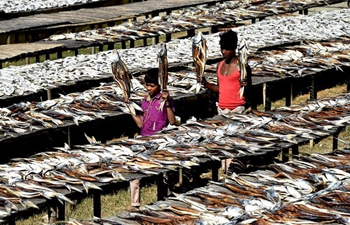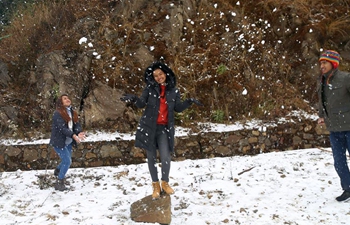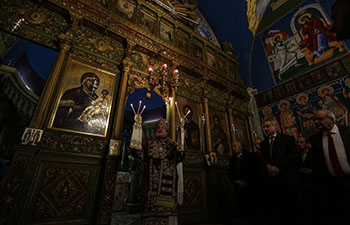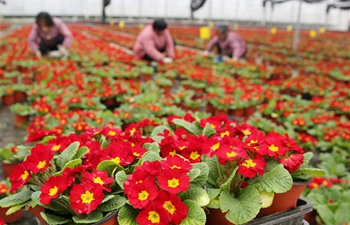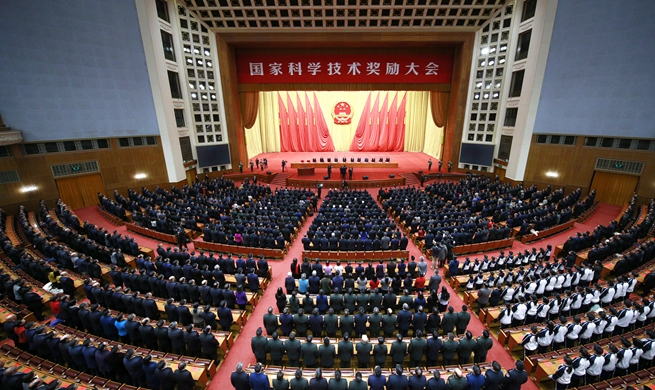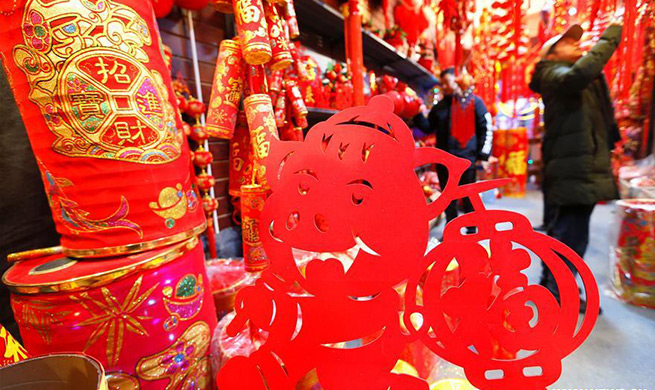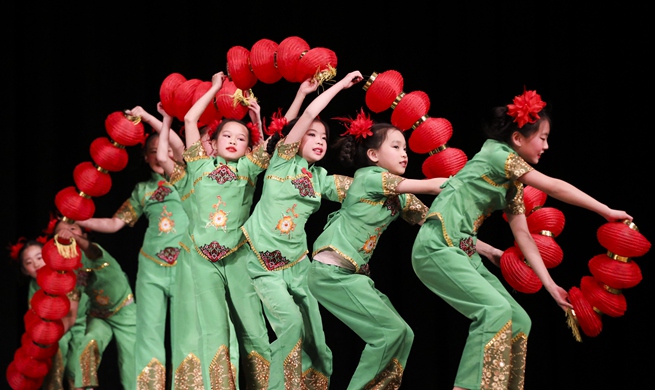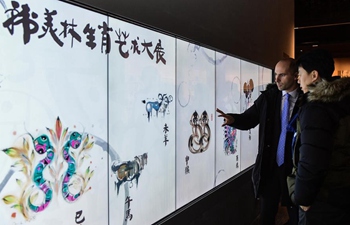by Raul Menchaca
HAVANA, Jan. 8 (Xinhua) -- Dressed in bright costumes, people of all ages gathered here at Saint Francis of Assisi Plaza, one of the city's oldest colonial-era sites, to celebrate the Epiphany, or Three Kings Day.
Many Christians around the world annually celebrate Three Kings Day on Jan. 6. It is a holiday that marks two events in Jesus Christ's life. The first event was when the three wise men, or kings, visited infant Jesus. The second event was when Saint John the Baptist baptized Jesus.
Three Kings Day is considered especially particular in Cuba. Since the end of the 17th century, it has been the only celebration when the island's African slaves were allowed to wear their traditional African clothes, carry out the rituals of their forefathers, and perform African songs and dances for the Spanish colonial governors.
Today, the holiday celebrates Cuba's rich cultural heritage as a Caribbean melting pot of peoples from African, European and indigenous backgrounds.
"As ethnologist Fernando Ortiz once said, you cannot talk about Cuban culture without talking about black people," said Alberto Granados, director of the museum Africa House and organizer of the annual Three Kings Day parade.
Ortiz was a Cuban essayist, anthropologist, ethnomusicologist and scholar of Afro-Cuban culture. He was also a prolific polymath dedicated to exploring, recording and understanding all aspects of indigenous Cuban culture.
"The merit of Cuba has been to keep the African traditions alive from one generation to the next," said Granados as he watched a ritual ceremony performed by Abakua, an Afro-Cuban secret society. As a part of the ceremony, some barefooted, half-naked men worshipped the mahogany tree around which the city was built.
Tracing their origins to the ancient Kingdom of Calabar, now in Nigeria, the Abakua have heavily influenced Cuban culture, Granados said.
"The Abakua are one of the biggest African influences in Cuban culture, not only in regard to the visual arts, dance and music, but also to social behavior," said Granados, who has organized the Scientific Workshop of Afro-American Social and Cultural Anthropology for more than 20 years.
This year's three-day workshop, which began Monday, focuses on the 25th anniversary of Cuba's Slave Route Project, which honors their culture of resistance against unjust treatment and their legacy in Cuba.
